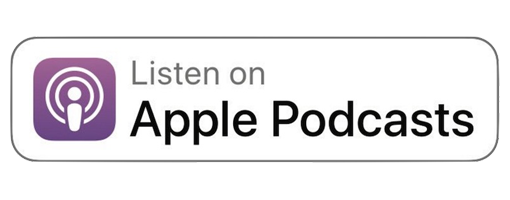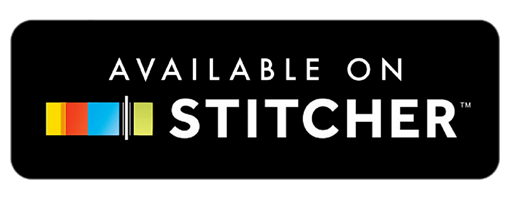Speak Clear English - Enroll Today
inglês e português:
Falsos cognatos
Hoje vamos falar sobre falsos cognatos. Existem muitas palavras que possuem a escrita ou até mesmo a pronúncia bem parecida, em inglês e português, no entanto, existem algumas expressões que parecem ter o mesmo significado, mas são bem diferentes, elas são chamadas de falsos cognatos. Vamos dar um exemplo para isso. A palavra “agenda” possui a mesma grafia, em inglês e português, mas assume um significado diferente, já a palavra “college” possui uma grafia parecida, em inglês e português, mas também assume um significado bem diferente.
Veremos esses e outros exemplos mais detalhadamente a seguir:
INGLÊS – PORTUGUÊS
Actual – real, verdadeiro / Atual – current
Actually – na verdade, de fato / Atualmente – currently, nowadays
Adept – perito, profundo conhecedor / Adepto – follower, supporter
Agenda – pauta do dia, pauta para discussões / Agenda – organizer, diary
Alias – nome falso, cognato / Aliás – else, moreover, furthermore/ besides / by the way
Amass – acumular, juntar / Amassar – to crush
Application – inscrição, registro, uso / Aplicação (investir dinheiro)- to invest money
Appointment – compromisso profissional / Apontamento (observação) – note
Beef – carne bovina / Bife – steak
Bond – elo, vínculo, apólice / Bonde – streetcar, trolley car (USA), cable car, tram
Cafeteria – refeitório, cantina / Cafeteria – coffeehouse, coffee shop, coffee bar, cafe
Cargo – carga / Cargo – post, position
College – faculdade / Colégio – school
Casualty – baixa (mortes em acidente ou guerra) / Casualidade – chance
Chef – chefe de cozinha / Chefe – boss, chief
Collar – gola, colarinho, coleira / Colar (noun) – necklace / Colar (verb) – to glue
Comprehensive – abrangente, extenso / Compreensivo – understanding / tolerant, sympathetic
Confident – confiante / Confidente – confidant
Dairy – laticínios, fábrica de laticínios / Diário (noun) – diary; daily (adjective)
Data – dados (números, informações) / Data – date
Deception – engano, ilusão / Decepção – disappointment
Dependable – confiável / Dependente – dependant, dependent / relative; subordinate
Devolve – transferir / Devolver – to return, give back, refund (especially money), to render (restituir)
Doze – cochilar / Doze (number) – twelve / dose – dose
Education – instrução, formação escolar / Educação (boas maneiras) – politeness, good manners
Eventually – finalmente / Eventualmente – occasionally
Exquisite – refinado, requintado, seleto, belo, fino / Esquisito – strange, weird, odd
Fabric – tecido / Fábrica – plant, factory
Figure – número / Figura – picture
File – arquivo / Fila – line, queue
Flagrant – espalhafatoso, escandaloso / Flagrante – at the very moment / em flagrante – in the act, red-handed / pegar em flagrante – to take by surprise
Genial – afável, aprazível / Genial – brilliant
Gentility – fidalguia, nobreza / Gentileza – kindness, niceness
Gracious – benévolo, bondoso / Gracioso – graceful
Gratuity – gratificação, gorjeta / Gratuito – free
Hostage – refém / Hóspede – guest
Idioms – expressões idiomáticas / Idiomas – languages
Ingenious – hábil, engenhoso / Ingênuo – naive, ingenuous
Intoxication – embriaguez, efeito de drogas / Intoxicação – poisoning
Jar – pote / Jarra – pitcher, jug
Jest – zombaria, gracejo, brincadeira / Gesto – gesture
Lamp – luminária / Lâmpada – light bulb
Legend – lenda / Legenda – subtitles
Library – biblioteca / Livraria – bookstore, bookshop
Lunch – almoço / Lanche – snack
Luxury – luxo, suntuosidade / Luxúria – lewdness, lasciviousness / lust
Magazine – revista / Magazine (loja) – shop, store
Mascara – rímel / Máscara – mask
Medicine – remédio, medicamento / Medicina – medicine
Notice – notar, perceber/ aviso, comunicação / Notícia – news
Notions – artigos de armarinho / Noção – notion, opinion, idea
Office – escritório, consultório / Ofício – trade, occupation
Official – funcionário, oficial (adj) / Oficial militar – officer
Oration – discurso formal / Oração (reza) – prayer
Parent – pai ou mãe / Parente – relative
Particular – específico, exato / Particular – personal, private
Pasta – massa (alimento) / Pasta – folder, briefcase
Policy – norma, programa de ação, apólice (de seguro) / Polícia – police (plural noun)
Pull – puxar / Pular – to jump
Push – empurrar / Puxar – to pull
Realize – notar, perceber, compreender / Realizar – to carry out, to make come true, to accomplish
Refrigerant – substância refrigerante usada em aparelhos / Refrigerante – soda, soft drink
Senior – idoso / Senhor – mister, sir
Service – atendimento / Serviço – job
Trainer – preparador físico / Treinador – coach
Tutor – professor particular / Tutor – curator, guardian
Ultimately – em última análise / Ultimamente – lately, recently
Vegetables – verduras, legumes / Vegetais – plants
Vine – videira / Vinho – wine
Esqueci algum falso cognato que você gostaria de compartilhar? Deixe nos comentários!
Agora que você adquiriu mais conhecimentos do idioma que está estudando, é hora de melhorar seu inglês!
Clique em um dos links a seguir para começar a falar um inglês mais claro!
1) Clear English Pronunciation Video Course
2) English Vocabulary – Audio Files & PDF – TOEFL & IELTS
4) Jumpstart Your English Audiobook + eBook
Siga-nos no Youtube e no Instagram:
@studyenglishwithandrea – Postagens diárias de inglês, dicas e vocabulário!
@citizenshiptest – Para quem quer estudar para o Teste de Cidadania Americana.
Fontes:
https://www.solinguainglesa.com.br/conteudo/falsos_cognatos1.php
https://www.cna.com.br/blog/estudos/falsos-cognatos-em-ingles
https://englishlive.ef.com/pt-br/blog/false-friends-falsos-cognatos-em-ingles-parece-mas-nao-e/
Até a próxima, Feliz Aprendizado!
Speak Clear English - Enroll Today

Jhessika Nascimento
Director of International Partnerships
Jhessika Nascimento is the Director of International Partnerships for Study With Andrea and lives in Brasilia, Brazil.
Jhessika is a bilingual teacher of English and Portuguese, studying for a Master's Degree in Strategic Management in Information Technologies at the Universidad Internacional Iberoamericana.
Graduation in Letters - Portuguese and English.
Postgraduate in Teaching in Higher Education.
Postgraduate in Risk Management and Cybersecurity.
Postgraduate Executive MBA in Process Management BPM-CBOK.
Postgraduate in Translation and Proofreading of Texts in English.
The following is a TOEFL Reading practice test to help you prepare for the Reading section of the TOEFL test.
Instructions: Read the sample passage below and then answer the questions that follow.
TOEFL Reading Practice Passage
Gorillas are ground-dwelling, predominantly herbivorous apes that inhabit the forest of central Sub-Saharan Africa. The genus Gorilla is divided into two species: the eastern gorillas and the western gorillas (both critically endangered), and either four or five subspecies. They are the largest living primates. The DNA of gorillas is highly similar to that of humans, from 95 to 99% depending on what is included, and they are the next closest living relatives to humans after the chimpanzees and bonobos.
Gorillas' natural habitats cover tropical or subtropical forest in Sub-Saharan Africa. Although their range covers a small percentage of Sub-Saharan Africa, gorillas cover a wide range of elevations. The mountain gorilla inhabits the Albertine Rift montane cloud forests of the Virunga Volcanoes, ranging in altitude from 2,200 to 4,300 metres (7,200 to 14,100 ft). Lowland gorillas live in dense forests and lowland swamps and marshes as low as sea level, with western lowland gorillas living in Central West African countries and eastern lowland gorillas living in the Democratic Republic of the Congo near its border with Rwanda.
(#1) Gorillas move around by knuckle-walking, although they sometimes walk upright for short distances, typically while carrying food or in defensive situations. (#2) A 2018 study investigating the hand posture of 77 mountain gorillas at Bwindi Impenetrable National Park (8% of the population) found that knuckle walking was done only 60% of the time, and they also supported their weight on their fists, the backs of their hands/feet, and on their palms/soles (with the digits flexed). (#3) Studies of gorilla handedness have yielded varying results, with some arguing for no preference for either hand, and others right-hand dominance for the general population. (#4)
The eastern gorilla is more darkly colored than the western gorilla, with the mountain gorilla being the darkest of all. The mountain gorilla also has the thickest hair. The western lowland gorilla can be brown or grayish with a reddish forehead. In addition, gorillas that live in lowland forest are more slender and agile than the more bulky mountain gorillas. The eastern gorilla also has a longer face and broader chest than the western gorilla. Like humans, gorillas have individual fingerprints. Their eye color is dark brown, framed by a black ring around the iris. Gorilla facial structure is described as mandibular prognathism, that is, the mandible protrudes farther out than the maxilla. Adult males also have a prominent sagittal crest.
A gorilla's lifespan is normally between 35 and 40 years, although zoo gorillas may live for 50 years or more. Colo, a female western gorilla at the Columbus Zoo and Aquarium, was the oldest known gorilla at 60 years of age when she died on 17 January 2017.
Questions
1. According to the passage, gorillas can live in
a. a variety of altitudes.
b. several different countries in Africa.
c. thick forests.
d. lowland forests only.
2. All of the following is true about gorillas EXCEPT
a. they primarily eat smaller animals.
b. they live in a forest habitat.
c. their genetics are similar to humans.
d. their diet consists of vegetation.
3. Look at the word predominantly in paragraph 1. The word predominantly in this passage refers to
a. impulsively
b. unfortunately
c. mainly
d. lastly
4. Look at the word inhabits in paragraph 2. The word inhabits in this passage refers to
a. lives in
b. protects
c. goes
d. works
5. The author implies that
a. most gorillas prefer using their left hand over their right.
b. gorillas rarely walk on their knuckles.
c. gorillas regularly walk upright for long distances.
d. studies haven't solidly proven which hand gorillas prefer using.
6. Why does the writer mention that the eastern gorilla also has a longer face and broader chest than the western gorilla?
a. To validate the importance a broad chest in western gorillas
b. To define the meaning of "broad"
c. To highlight a physical difference between types of gorillas
d. To demonstrate that most gorillas are identical in physical build
7. Which of the following statements is true for BOTH eastern and western gorillas.
a. Both eastern and western gorrilas are brown with red foreheads.
b. Both eastern and western gorrilas have unique fingerprints.
c. Both eastern and western gorrilas have thin hair.
d. Both eastern and western gorrilas have light brown eyes.
8. In Paragraph 3, look at the four numbers (#1, #2, #3, #4) that indicate where the following sentence would be added to the passage.
Such a range of hand postures was previously thought to have been used by only orangutans.
Where would the sentence best fit?
(View all the correct answers below.)
Great job! If you're ready to take your TOEFL preparation to the next level, go to StudyWithAndrea.com/TOEFL.
Answers: 1. d 2. a 3. c 4. a 5. d 6. c 7. b 8. #3
Click on one of the following links to start speaking clearer English!
1) TOEFL MASTER CLASS
2) free mini-course "punctuation mistakes to avoid"
3) Clear English Pronunciation Video Course
4) English Vocabulary - Audio Files & PDF - TOEFL & IELTS
About Andrea
Andrea Giordano is the founder of StudyWithAndrea.com and has taught more than 1,000,000 students from 180 countries. Andrea holds a Master of Education (TESOL) from Shenandoah University, and is the former Executive Director of TESOL and ESL programs at Campbellsville University. Andrea is a proven leader in online English teaching and is driven by her passion to help you speak English clearly.





